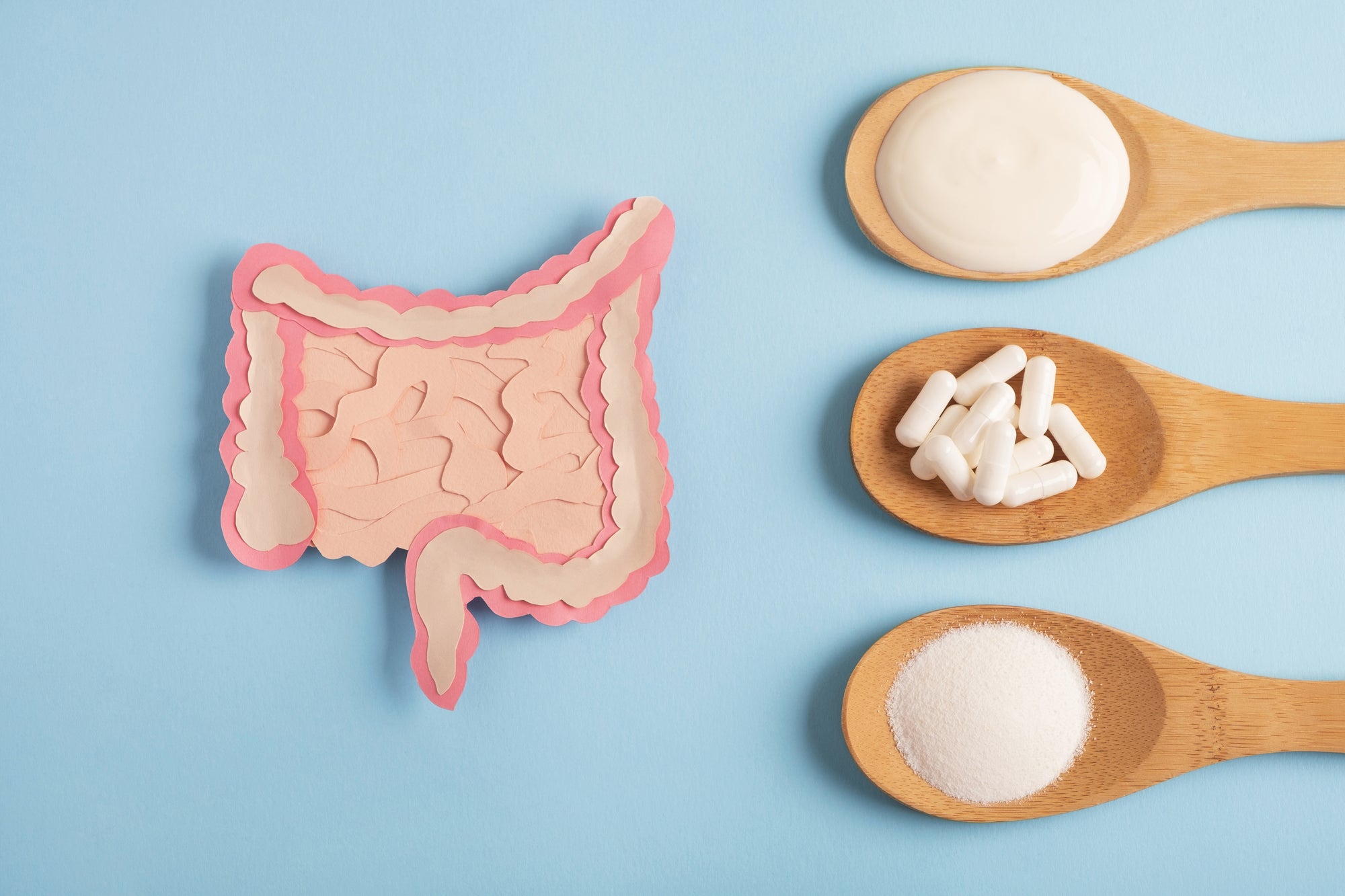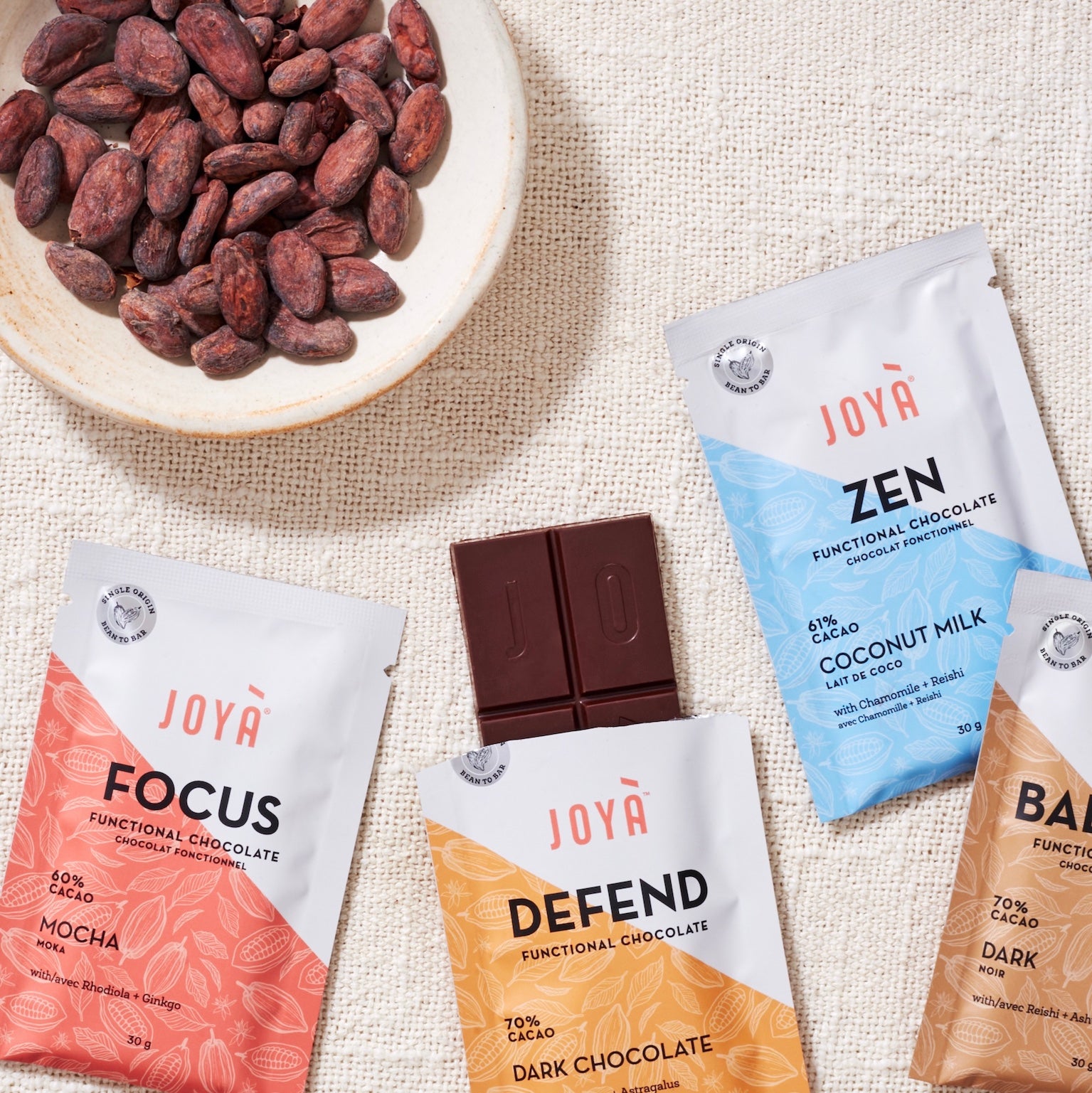
First, you bought yogurt. Then you tried probiotic supplements. Then, you decided to buy refrigerated probiotic supplements. You felt confident about your gut health, and then you learned you need prebiotics as well. It can feel overwhelming trying to keep up!
Take a deep, cleansing breath. Both probiotics and prebiotics have a place in your diet, and they aren’t as complicated as they sound. We’ll discuss why your gut health depends on both and how your overall wellness is directly tied to the gut.
What Are Probiotics?
Probiotics are live bacteria. You read that right. Although we’ve spent the better part of our lives convinced that all bacteria are bad, it turns out our bodies depend on them. In fact, our bodies are covered with bacteria both inside and out.
The skin, for instance, has its own microbiome that helps regulate the skin barrier and ensure its proper function. The gut (the main parts of the digestive system, and the small intestines in particular) are home to over 1,000 different species and more than 7,000 strains of bacteria.

The microbiome in our gut plays a central role in our health, with the largest portion of our immune system located there. There are three types of bacteria that can inhabit our gut:
- good bacteria – which support important bodily functions like digestion and immunity
- bad bacteria – which are pathogenic
- opportunistic bacteria – which are not problematic when we’re healthy, but can cause problems in the gut when the body is out of balance
The levels of bacteria in your gut need to remain balanced for them to thrive and support the bodily systems they’re involved with (which is practically all of them).
Each person’s microbiome is different, and the numbers and levels of good bacteria change with age, genetics, toxin exposure, and diet.
Why Are They Called Probiotics?
You’re probably familiar with antibiotics. These are designed to kill bad bacteria in the body that causes infection. The prefix “anti” means “against,” “pro” means “for,” and “bio” means “life.” Thus, “pro-” biotics means “for life.”
When we take a probiotic, we’re taking live bacterial organisms. Essentially, we’re sending in reinforcements to the existing levels of good bacteria in our gut.
Benefits of Probiotics
Encouraging a healthy gut and supporting digestive health is just the start. Probiotics also support your immune system by stimulating immune cells located in the gut. Probiotics have numerous immunomodulatory qualities and can help ensure proper immune function.
Because the gut microbiota is so influential on overall health, it’s important to take care of it. Taking care of your digestive tract and gut also helps your body absorb key vitamins, minerals, and other nutrients from your food, which can ensure your body is fully supported.

Food Sources of Probiotics
Probiotics are found naturally in fermented foods like kefir, sauerkraut, miso, tempeh, yogurt and kombucha. Other probiotic-rich foods include kimchi, pickles, and some types of cheese. You can, of course, take a probiotic supplement if you find it difficult to include fermented foods in your diet.
What Are the Types of Probiotics?
There are many different types of probiotic strains available in supplement form and in foods. Two of the most popular are Lactobacillus and Bifidobacterium.
- Lactobacillus. This type of probiotic is found in cheese and other dairy products. Bacteria in this family have a high tolerance for changes in pH levels that can occur in the digestive tract.
- Bifidobacterium. This type of probiotic is found naturally in the gut and mouth. These are particularly helpful in allowing the body to break down and ferment carbohydrates found in dairy. These also have antimicrobial properties that help support the immune system.
There are health benefits associated with both, and adding both of them to your diet is a smart choice and is generally considered safe.
That leaves one glaring question. Since probiotics are living organisms, what do they need to survive? The answer is prebiotics.
What Are Prebiotics?
Prebiotics are foods that feed the beneficial bacteria in your gastrointestinal tract. Prebiotics are types of fibers that resist digestion and pass through to the microorganisms in the colon to be used to nourish them.
When prebiotics are broken down, they convert to short-chain fatty acids. These fatty acids created by your gut flora provide energy to your colon cells, support mucus production and aid in inflammation and immunity.
Consuming prebiotics helps support the good bacteria in the gut, which helps regulate levels of harmful bacteria and keep you healthy.

What Are the Types of Prebiotic Fiber?
Here’s where it gets a little tricky. It would be easy to say all fiber is prebiotic fiber, but that is not the case. All prebiotics are fiber, but not all fibers are prebiotics.
There are two types of fiber:
- Soluble fiber. This type of fiber is fermented by gut bacteria. When digested, it turns into a gelatinous material that can feed your gut bacteria.
- Insoluble fiber. This type of fiber cannot be fermented. It’s what we consider roughage. This type of fiber is found in leafy green veggies and cruciferous vegetables.
Prebiotic fibers are soluble fibers, and include sources such as inulin, chicory root, asparagus, Jerusalem artichokes, onions and leeks. However, not all soluble fibers will be classified as prebiotic fibers because some don’t engage enough gut microbes for digestion to be considered a prebiotic source.
How Do Probiotics and Prebiotics Work Together for Gut Health?
You need both probiotics and prebiotics to keep your gut healthy. The symbiotic relationship between the two has resulted in the development of synbiotics, a mixture of both probiotics and prebiotics that you can take together.
Can Prebiotics and Probiotics Improve Mental Health?
Research points to yes! And a key reason for this is tied to serotonin, a neurotransmitter that plays a vital role in the communication between your gut and brain. Your gut bacteria produce about 95 percent of the serotonin in your body; most of the rest is produced by neurons in the brain. The amazing thing is that changes in your serotonin level affect your gut and your brain.
For example, when your brain experiences stress, you may feel like you have an upset stomach — and that’s just one way the gut-brain axis works. The communication goes both ways. An upset stomach or continual digestive issues may indicate an issue with your mental health or brain health.
Ensuring that your gut health is balanced can help support a more balanced mood and a healthier stress response.
How Can You Eat More Probiotics and Prebiotics?
In addition to the foods listed above, you can also look for other ways to support your body’s need for probiotics and prebiotics. Some herbs and fungi, like lion’s mane mushroom, contain prebiotic fibers known as beta-glucans, which can help support your gut health and immune function.

If you’re interested in taking a probiotic, you can go for a dietary supplement, and you can also try to incorporate probiotic-rich foods, which include fermented foods like yogurt, sauerkraut, and some cheeses.
A Word to the Gut-Wise
If you’re already dealing with an unbalanced gut (i.e., more bad bacteria than good), it might be best to work with a knowledgeable dietitian or healthcare professional who can guide you through how to remove the excess bad bacteria from the gut before feeding the good gut bacteria to promote their health and diversity.
If you begin taking a prebiotic with an unhealthy level of bad bacteria, you could end up feeding them and creating more of an imbalance.
What Are the Side Effects of Taking Probiotics and Prebiotics?
If you’ve ever eaten a massive amount of probiotic foods, or introduced a new probiotic or prebiotic supplement, you might have experienced some common side effects like bloating or constipation — this can happen if you suddenly introduce a drastic change in your probiotic or prebiotic intake. If you’re concerned about these issues, it’s best to get medical advice from your healthcare practitioner before you begin probiotic or prebiotic supplements.
The Bottom Line
Your gut health is directly tied to the health of your entire body and even plays a role in your mental health. If your gut isn’t healthy, you won’t experience the highest level of overall wellness your body is capable of.
Taking steps to restore and balance your gut health can help your body thrive. You can start by seeking out a healthcare practitioner who can help you determine the health of your gut and help you determine how to improve it. Starting a prebiotic or probiotic supplement without the help of a healthcare professional or nutritionist could result in gastrointestinal discomfort.

Once you’re on track, regularly consuming probiotic- and prebiotic-rich foods can help keep your gut well and balanced. Staying well and balanced is part of the JOYÀ lifestyle.
Our Functional Chocolates give you access to functional foods and adaptogenic herbs, including probiotic-rich herbs and mushrooms, that help recalibrate your body and bring it back to homeostasis. It’s an easy and delicious way to consistently focus on your health and wellbeing.
